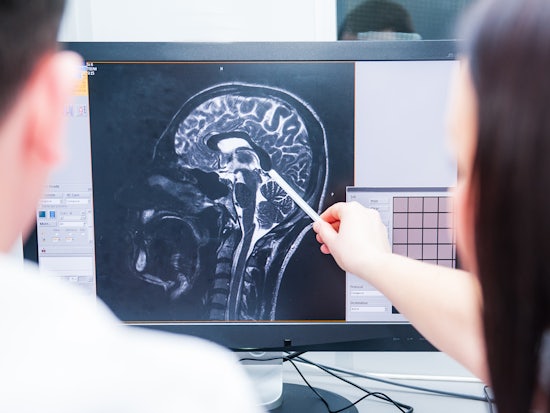High hopes for dementia breakthroughs
Two researchers from the University of South Australia (UniSA) have collectively been awarded $1.4 million in Federal Government grants to pursue studies looking into breakthroughs in preventing and treating dementia.

Researchers at the UniSA will undertake a number of studies to tackle several issues related to dementia (Source: Shutterstock)
Cognitive neuroscientists Dr Hannah Keage and Dr Tobias Loetscher will use the National Health and Medical Research Council (NHMRC) Fellowship funds to investigate the link between visual impairments and dementia, as well as vascular contributions to dementia over the next four years.
As part of the study, the researchers based at the UniSA’s Cognitive Ageing and Impairment Neurosciences (CAIN) Lab will undertake a number of studies to tackle several issues related to dementia.
Dr Keage’s $718,000 project will look at the cognitive impacts of heart surgeries in older adults, with approximately 10,000 people over the age of 65 undergoing heart surgeries in Australia each year, who are typically vulnerable to developing dementia due to long histories of cardiovascular disease.
“Older adults with cardiovascular disease and associated conditions such as Type 2 diabetes, obesity and hypertension are at risk of dementia,” Dr Keage says.
“They are also at risk for needing heart surgery, which is an additive risk factor for cognitive decline, and we look at intervention strategies to help arrest that after surgery.
“We are going to undertake experiments in Adelaide hospitals to increase older patients’ cognitive function after cardiovascular surgery and also try to develop tools where we can identify people at a higher risk of delirium, which often accelerates dementia onset.”
Currently there are preventative strategies for delirium but they are expensive, the Dr Keage her fellow researchers hope to identify those at higher risk, so that these strategies can be targeted to treat the more vulnerable patients.
Dr Loetscher will use his $712,000 NHMRC grant to understand the visual problems that people with dementia experience, so that changes can be made to their environment.
“More than half of people diagnosed with Alzheimer’s disease are affected by visual impairments, particularly perceiving contrasts, depth and also motion,” Dr Loetscher says.
“These visual problems may appear before signs of memory loss, so part of my research will involve recruiting older people and assessing their eye movements and cognitive function over a period of a few years to see if certain visual abnormalities predict the development and progression of cognitive impairments.”
As part of his research, Dr Loetscher will be working with South Australian aged care provider Helping Hand to investigate what changes can be made to environments to make life easier for people living with dementia.
“Simple things like ensuring there are clear contrasts between the colours of walls and doors so they can find their way around, and also making sure that dinner plates are contrasted with table cloths,” he explains.
“People with dementia often don’t drink or eat enough; it may not be because they forget or aren’t hungry, but simply because they can’t see their food clearly if there are not distinct contrasts on a dining table.”
Helping Hand Chief executive Officer (CEO) Ian Hardy says the provider is “pleased to be playing a role in this significant piece of research.”
“More than 400,000 Australians are living with dementia, however the impact of the disease is so much greater as the diagnosis affects individuals, families and communities,” Mr Hardy says.
“We expect that this research will offer governments and service providers meaningful information on how to improve the design of dementia-friendly environments.
“This information will help to create a more accessible and inclusive community for people with dementia experience.”
As part of the research and partnership with Helping Hand, Dr Loetscher will engage Helping Hand residents and clients and will work across several of the providers residential care homes throughout the research project.
The findings from D Loetscher’s research hope to not only inform the design of aged care homes, but also to adapt the individual homes of people living with dementia.
Both Dr Keage and Dr Loetscher will be recruiting Masters and PhD students to help work on the projects.











![The new Aged Care Act exposure draft is slated for release in December of 2023, but advocates hope to see it rolled out on January 1, 2024. [Source: Shutterstock]](https://agedcareguide-assets.imgix.net/news/articles/wp/agedcareact__0811.jpg?fm=pjpg&w=520&format=auto&q=65)












Comments